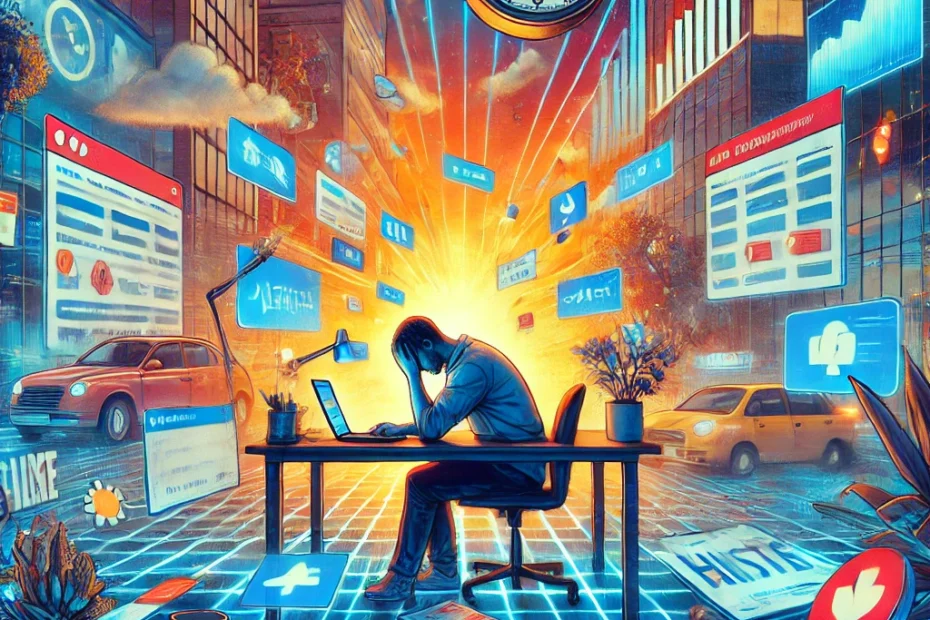The Illusion of Balance
In today’s hyper-competitive work environment, the concept of work-life balance often feels like an unattainable dream. Many Americans are caught in a cycle where professional demands overshadow personal time, casting the idea of balance as mere illusion. The constant push to excel and exceed expectations leaves little room for leisure or self-care, leading to an alarming rise in burnout rates across the nation.
Chasing the Ever-Moving Goalpost
The modern workplace often sets unrealistic expectations, encouraging employees to chase after ever-moving goalposts. This relentless pursuit of achievement leaves individuals trapped in a continuous loop of deadlines and deliverables. The pressure to be perpetually productive not only erodes personal time but also impacts mental health, fostering a culture where exhaustion is normalized and even glorified.
Technology: Friend or Foe?
Technology, initially heralded as a tool for improving work-life balance, has blurred the boundaries between professional and personal life. The ability to be constantly connected means work can infiltrate personal time at any moment. Emails and messages ping into evenings and weekends, creating an expectation of constant availability. This digital tether keeps individuals anchored to their jobs, making it difficult to fully unplug and recharge.
The Rise of Hustle Culture
Hustle culture, with its mantra of working harder and faster, has become a dominant narrative in American society. While it can drive innovation and entrepreneurship, it often leads to burnout by expecting individuals to prioritize work above all else. The glorification of busyness as a status symbol means people rarely allow themselves the much-needed rest, contributing to an unsustainable and unhealthy lifestyle.
Health Implications: Beyond Tiredness
Burnout is more than just feeling tired; it has significant health implications. Prolonged stress and overwork can lead to mental health issues like anxiety and depression. Physical health is also at risk, with chronic fatigue, headaches, and sleep disorders becoming all too common. The toll on both mind and body highlights the urgency of addressing burnout as a serious health crisis.
Redefining Success: Quality Over Quantity
To combat burnout, there needs to be a fundamental shift in how success is defined. Emphasizing quality of output rather than the quantity of hours worked can help create a more sustainable approach. Organizations that prioritize employee well-being and encourage breaks, vacations, and flexible working hours often see increased productivity and satisfaction.
Mindfulness and Recovery
Incorporating mindfulness and relaxation techniques into daily routines can help mitigate burnout. Practices like meditation, yoga, and deep breathing exercises promote relaxation and stress reduction. Encouraging employees to disconnect and take time for themselves can aid in recovery, helping to restore balance and enthusiasm for their work.
Cultivating a Supportive Culture
Businesses and leaders play a critical role in addressing burnout by fostering a supportive work culture. Open communication, recognizing signs of burnout, and providing resources for mental health can significantly impact employee well-being. By valuing and prioritizing the human aspect of work, companies can create an environment where balance is more than just a mirage.
The Path Forward
Burnout is a complex issue with no one-size-fits-all solution. However, acknowledging its prevalence and taking steps to address it can lead to meaningful change. By redefining expectations and prioritizing well-being, both individuals and organizations can work towards a future where balance is not just a fleeting illusion but a tangible reality. Embracing this change is essential for long-term health and happiness in the modern working world.
